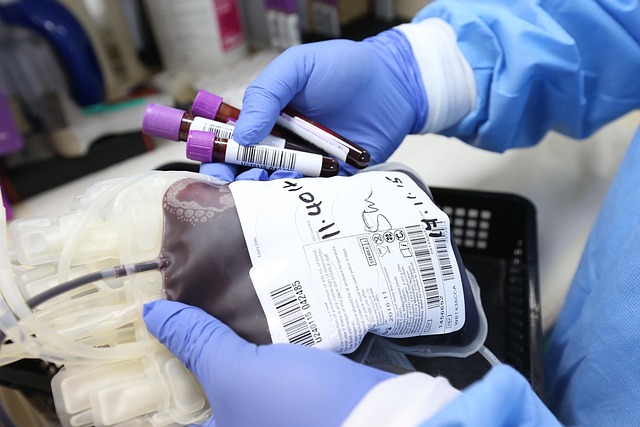Top Foods That Help Support Memory and Brain Health
Brain friendly foods are showing up in more daily diets. Nutrient rich options can support memory, focus, and mental clarity. From leafy greens to omega rich fish, the right food choices may benefit people of all ages, especially seniors aiming to stay sharp.

What Are the Best Foods to Support Memory and Brain Performance?
Certain foods stand out for their exceptional brain-boosting properties. Fatty fish like salmon, mackerel, and sardines contain high levels of omega-3 fatty acids, particularly DHA, which supports brain cell structure and communication. Blueberries are rich in anthocyanins, antioxidants that may help improve memory and delay age-related cognitive decline. Nuts and seeds, especially walnuts and pumpkin seeds, provide vitamin E and healthy fats that protect brain cells from oxidative stress.
Dark leafy greens such as spinach, kale, and broccoli deliver folate, vitamin K, and lutein, nutrients that support cognitive function and may slow mental decline. Eggs contain choline, a nutrient essential for producing acetylcholine, a neurotransmitter involved in memory and learning. Whole grains like oats and quinoa provide steady glucose to fuel the brain throughout the day.
Which Vitamins and Nutrients Help With Focus and Recall?
Several key nutrients play crucial roles in maintaining sharp focus and strong recall abilities. Omega-3 fatty acids, particularly DHA and EPA, are fundamental for brain structure and function. These essential fats help maintain cell membrane integrity and support communication between neurons.
B-vitamins, including B6, B12, and folate, work together to reduce homocysteine levels, which can damage brain tissue when elevated. Vitamin E acts as a powerful antioxidant, protecting brain cells from free radical damage. Vitamin K supports cognitive function and may help improve memory performance.
Choline is essential for producing acetylcholine, often called the “learning neurotransmitter.” Iron supports oxygen transport to the brain, while zinc plays a role in neurotransmitter function. Magnesium helps regulate nerve transmission and may improve learning and memory formation.
What Memory-Friendly Diets Are Recommended for Seniors?
The Mediterranean diet consistently ranks among the top eating patterns for brain health, particularly for older adults. This diet emphasizes olive oil, fish, nuts, fruits, vegetables, and whole grains while limiting processed foods and red meat. Research suggests this pattern may help preserve cognitive function and reduce the risk of dementia.
The MIND diet combines elements of the Mediterranean and DASH diets, specifically targeting brain health. It emphasizes leafy greens, berries, nuts, fish, poultry, olive oil, and wine in moderation. This approach has shown promising results in studies focusing on age-related cognitive decline.
The DASH diet, originally designed for heart health, also benefits brain function by promoting foods that support healthy blood flow. Since the brain requires significant blood supply, maintaining cardiovascular health directly impacts cognitive performance. These diets all emphasize whole, minimally processed foods rich in the nutrients that support brain health.
Which Foods May Help Reduce Memory Decline?
Specific foods have shown particular promise in research related to preventing or slowing memory decline. Turmeric contains curcumin, a compound with anti-inflammatory properties that may help clear amyloid plaques associated with Alzheimer’s disease. Dark chocolate with at least 70% cocoa provides flavonoids that can improve blood flow to the brain and enhance memory performance.
Green tea contains L-theanine and EGCG, compounds that may improve brain function and protect against neurodegenerative diseases. Avocados provide monounsaturated fats that support healthy blood flow to the brain. Coffee, consumed in moderation, offers antioxidants and may help protect against cognitive decline.
Fermented foods like yogurt, kefir, and kimchi support gut health, which increasingly appears connected to brain health through the gut-brain axis. The probiotics in these foods may influence neurotransmitter production and reduce inflammation that can affect cognitive function.
| Food Category | Key Examples | Primary Brain Benefits | Daily Serving Suggestion |
|---|---|---|---|
| Fatty Fish | Salmon, Mackerel, Sardines | Omega-3 fatty acids for brain structure | 2-3 servings per week |
| Berries | Blueberries, Strawberries, Blackberries | Antioxidants for memory protection | 1/2 to 1 cup daily |
| Leafy Greens | Spinach, Kale, Broccoli | Folate and vitamin K for cognitive function | 1-2 cups daily |
| Nuts and Seeds | Walnuts, Pumpkin Seeds, Almonds | Vitamin E and healthy fats | 1 ounce (handful) daily |
Creating a Sustainable Brain-Healthy Eating Plan
Implementing brain-healthy eating habits doesn’t require dramatic dietary overhauls. Start by incorporating one or two brain-boosting foods into meals you already enjoy. Add blueberries to morning oatmeal, include spinach in sandwiches, or snack on a handful of walnuts instead of processed foods.
Meal planning can help ensure consistent intake of brain-healthy nutrients. Prepare salmon or other fatty fish twice weekly, use olive oil for cooking, and keep nuts and seeds readily available for snacking. Staying hydrated is equally important, as even mild dehydration can affect concentration and memory.
Remember that brain health benefits from consistent, long-term dietary patterns rather than short-term changes. Focus on gradually replacing processed foods with whole, nutrient-dense options. The combination of various brain-healthy foods provides a broader spectrum of protective compounds than relying on any single superfood.
The relationship between nutrition and cognitive health continues to evolve as research reveals new connections between diet and brain function. By choosing foods rich in omega-3 fatty acids, antioxidants, and essential vitamins, individuals can take proactive steps to support their memory and cognitive performance throughout life. These dietary choices, combined with regular physical activity and mental stimulation, form a comprehensive approach to maintaining brain health and potentially reducing the risk of age-related cognitive decline.
This article is for informational purposes only and should not be considered medical advice. Please consult a qualified healthcare professional for personalized guidance and treatment.




